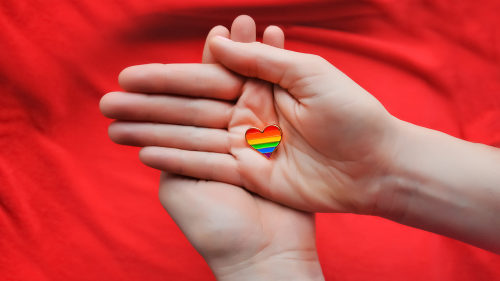LGBT is an acronym for lesbian, gay, bisexual and transgender, which are terms used to describe an individual’s sexual orientation or gender identity. Further, individuals that identify as non-heterosexual or non-cisgender may consider themselves members of the LGBT community. Though the federal government has taken steps (e.g. Title VII of the Civil Rights Act of 1964) to actively protect LGBT community members against discrimination on the basis of gender identity and/ or sexual orientation, the deeply engrained stigma lingers. Individuals that identify members of the LGBT community often face a plethora of adverse challenges. Psychology of Addictive Behaviors asserts that LGBT members are at higher risk of alcohol and/ or drug abuse than non-LGBT members. Addiction, also known as substance use disorder, is listed in the Diagnostic and Statistical Manual of Mental Disorders, Fifth Edition (DSM-5) as a chronic brain disorder. It is characterized by compulsively engaging in rewarding stimuli (e.g. abusing drugs and/ or alcohol) regardless of the consequences. An individual that struggles with addiction and/ or substance abuse will prioritize satisfying drug cravings above all else, which can wreck havoc in all areas of one’s life.
Treatment Options
There are a variety of substance abuse and/ or addiction treatment options available to those in need. When considering substance abuse and/ or addiction treatment options it is helpful be mindful of one’s own needs and be sure to select a program that can accommodate them. Substance abuse and/ or addiction treatment programs are often structured in one of two ways: inpatient treatment programs or outpatient treatment programs. There are benefits and drawbacks to each type. Within both inpatient treatment and outpatient treatment structures there are specialized programs that cater to individuals with specific needs (e.g. dual diagnosis, LGBT community members, etc.).
Though members of the LGBT community are welcome to attend non-specialized substance abuse and/ or addiction treatment programs, often programs that cater to members identifying as LGBT can provide more pointed, relevant and extensive treatment. The most effective treatment will consider LGBT-specific issues (e.g. personal, social and psychological challenges) and integrate healthy coping mechanisms that are relevant to both the struggles of substance abuse as well as those that inevitably manifest as a result of being an LGBT community member. Regardless of one’s selection, every person is different and will have nuanced needs when it comes to treatment for addiction and/ or substance abuse. Most programs develop tailored substance abuse and/ or addiction treatment plans for each attendee, which are heavily informed by the unique needs of the individual.
For Information and Support
If you are concerned for yourself or a loved one in regards to substance abuse and/ or addiction we recommend reaching out for help as soon as possible. If left untreated, substance abuse can result in long lasting and potentially life-threatening consequences. Keep in mind: you are not alone! There is an entire network of professionals that are available to help and support you and your loved one throughout the recovery process. The earlier you seek support, the sooner your loved one can return to a happy, healthy, and fulfilling life.
Please do not hesitate to reach out with any questions regarding our specific program at Haven House Addiction Treatment and/ or general substance abuse and/ or addiction treatment related information. Our highly trained staff is readily available to discuss how we might best be able to help you and your loved one. We can be reached by phone at 424-258-6792. You are also welcome to contact anytime us via email at admissions@hhtxc.com.



